Israelis are now required to wear face masks outdoors in a mandatory directive issued by the Health Ministry that went into effect this week. The Health Ministry has said that these masks can be store-bought, homemade, or makeshift but that they must cover the nose and mouth.
Officials have recommended against buying traditional N95 or surgical masks, mainly because they want to leave them for the health care workers. In recent weeks, Israel has faced a shortage of personal protective equipment, including masks, for medical workers though that has changed in recent weeks due to shipments from China, and deliveries coordinated by the Mossad, Israel’s national intelligence agency.
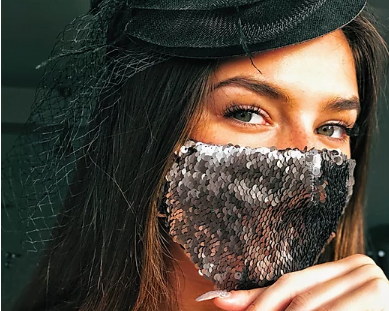
Meanwhile, fashion designers, artists, seamstresses, and textile industry workers are suddenly finding themselves out of work, like 25 percent of Israeli population currently jobless. Besides not being able to open their businesses, general spending on non-essential items such as clothes, art, and jewelry has been affected. Many in the industry have felt compelled to help the best way they know how.
While there’s been no official call in Israel on the apparel industry to make face masks, unlike in New York, many of these fashion and fabric experts have started their own initiatives to make them — using patterned cloths, unique patchwork, and fun-loving designs.
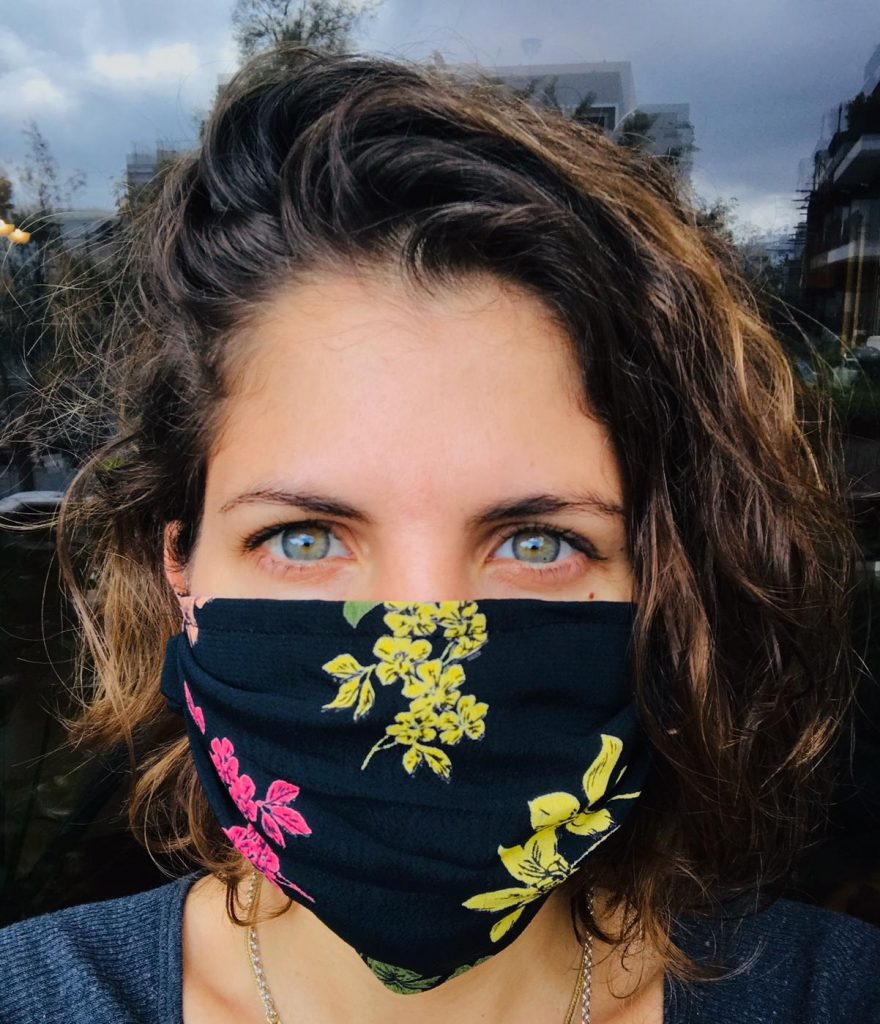
Tel Aviv-based fashion entrepreneur Dana Kira and restauranteur Alon Levi saw both of their businesses come to a grinding halt when lockdown measures were put in place last month amid the coronavirus outbreak. They were both looking for what to do next when, separately, they contacted a mutual Batel Bar Giora, a fashion designer with Israeli brand Feyge. She made the connection between the two after realizing they had the same idea — to create handcrafted face masks from reusable cloth.
The idea behind their product is to make colorful and quality cloth masks that can be reused, in order to minimize waste, and give people an alternative to disposable masks, which are necessary for health care workers, Alon Levi writes in an email to NoCamels.
Kira contacted fellow designers in Tel Aviv, such as Amit Shalom from Israeli brand BoBo who donated leftover materials from their businesses. This gave the duo a supply of fun, colorful and unique designs. All masks are sewn locally.
“It is very important for us to make our masks accessible so anyone can afford them,” explains Levi. The masks are sold at two apiece for NIS 68 ($19). A range of masks is found on the brand’s Instagram page. Free delivery is available anywhere in Israel.

They aren’t the only ones who found themselves looking to fill a void. Ruth Lenk, a Netanya-based quilter and art teacher started a Facebook page in November to sell her quilts. Sewing masks only followed when she created masks for family members to follow the Health Ministry’s directive.
Lenk tells NoCamels she was encouraged by those family members to start selling those masks on her page, The Creative Adult, and decided to launch an initiative to donate a mask to a hospital worker every time she sold one. She says she is also looking to donate masks to elderly care facilities and programs for at-risk kids. Lenk sends photos of options to customers who choose what they like and says she has been overwhelmed by the interest she has received.
Yarden Oz, a 28-year old wedding and evening dress designer who has designed bridal gowns for some 400 women, found herself without work when Israeli wedding celebrations were limited to small numbers and then banned altogether. She decided to take the opportunity to design a collection of fashionable fabric masks that “will bring some color and joy to this era” and support the battered economy, she writes on the official website of her brand, Happy People. Her mask designs are also found on her Instagram page.
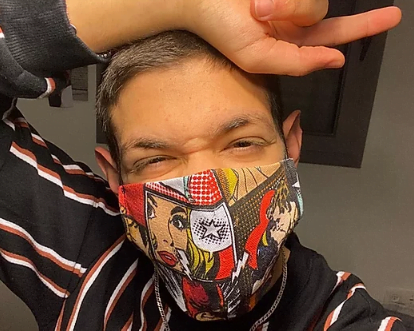
Some designers have even drawn inspiration from the Mediterranean Sea. Doraya Avital Kancepolsky, a graduate of the Bezalel Academy of Art of Design and Oryan Asher specialize in designing and manufacturing small collections of carefully hand-crafted products based on their lifestyle;
both designers live in neighboring boats on the Tel Aviv Marina. They named their brand, Fishi Fish.
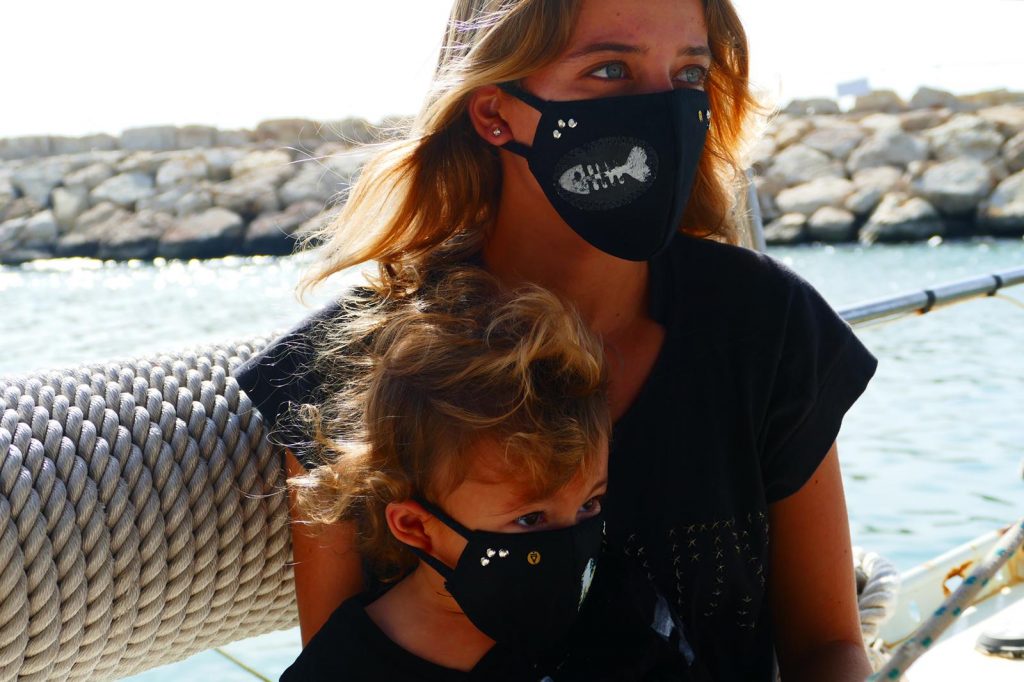
The pair came up with the idea to make masks some two weeks ago when health authorities announced it would be mandatory for people to wear them outdoors. Their masks are typically adorned with patches featuring handmade design elements such as fish skeletons or eyes. Customers can also order masks with no design.
“It all happened really fast,” Kancepolsky tells NoCamels. “I spent all night sewing samples and by the next evening we had already put them up for sale.”
Sign up for our free weekly newsletter
Subscribe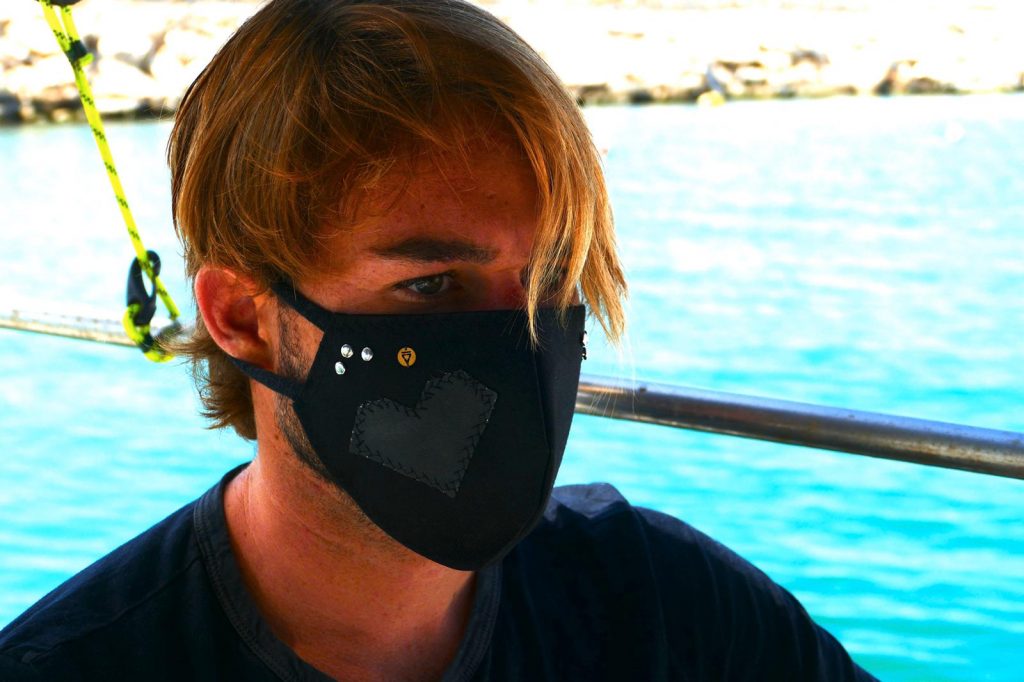
“The new situation imposed by the coronavirus obligates us to reorganize and adapt to a new and unfamiliar lifestyle. If six months ago I would have left the house with such a mask on my face, people would either think I’m crazy or suspect that I’m about to rob a bank. But the mask is going to be an inseparable part of our apparel in the next few months,” she adds.
Face masks from Israeli design schools
Students and faculty from textile and design departments at two of Israel’s top design schools have also created their own stylish masks as the new “accessory of the future.”
Ori Topaz, an independent designer and researcher at The David & Barbara Blumenthal Israel Center for Innovation and Research in Textiles, also known as CIRTex, at the Shenkar College of Engineering and Design, recently created a DIY video to show viewers how to make a mask at home that is both functional and stylish. The video was prepared as part of a group collaboration to promote “effective steps in the reduction of the spread of coronavirus,” she tells NoCamels.

The group, which brings together researchers of different expertise, includes partners such as the Hebrew University of Jerusalem, the Weizmann Institute of Science, the Interdisciplinary Center in Herzliya, and the Israeli Ministry of Defense Directorate of Defense Research and Development (DDR&D).
Topaz initially prepared a DIY video with sewing, but quickly realized that in order to make the video more helpful to the general population, a video also needed to be made without it.
“The first step was to give a quick and easy way of protection without the need for using a sewing machine. Later on, we would recommend a list of household anti-viral materials, which can be used with the insert layer of the mask. With these materials, we can elevate the mask protection of the person wearing it. These materials are still being tested,” Topaz says.
Topaz created a pattern that can help create the shape of the mask and includes a pocket that is filled with tissue to give it an extra layer of protection. Topaz says researchers from the group are currently testing a list of household products that contain active ingredients for disinfection that can be integrated with the tissue layer.
Bezalel Academy of Art and Design student Yael Mordecay found herself in a unique predicament when a protective face mask she created as part of a first-semester project that dealt with future scenarios became a smart and stylish aid for a world problem that is hitting the entire world.
“I decided to deal with air pollution, which will become a significant issue in the future. The course’s main focus was wearable technology, so I looked for wearable protection against air pollution and how I can make people more aware of it,” she tells NoCamels.
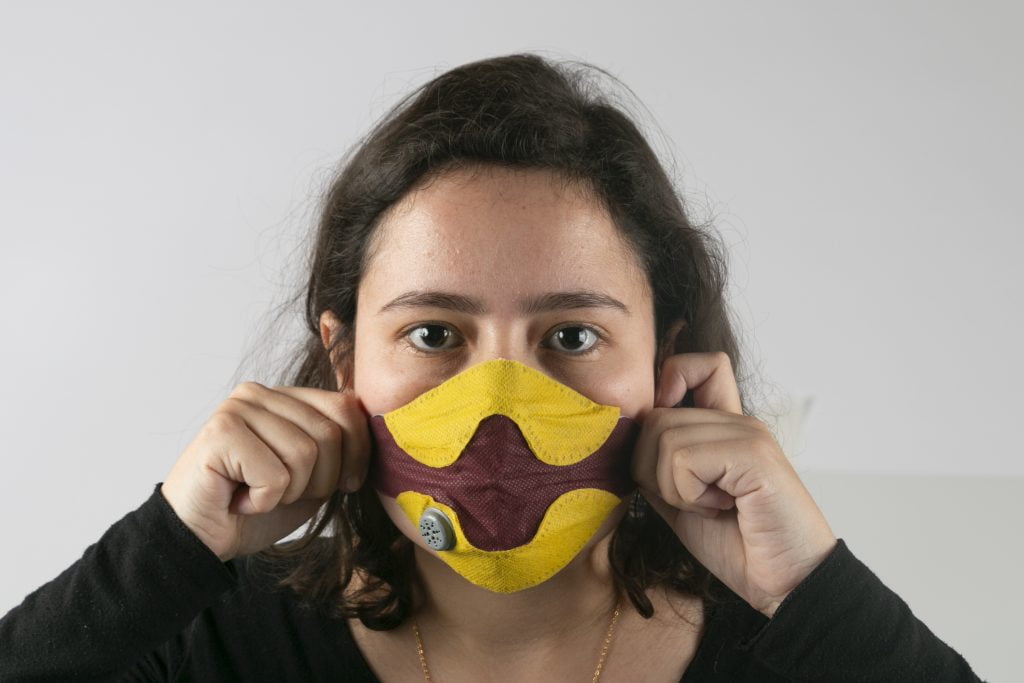
“The mask is built on the same principles of the N95 masks that are also capable of filtering coronavirus,” she explains. “The case for the mask has two functions — the first is a sensor that monitors the air around it and notifies the user when to put on the mask. The second use is the UV light that turns on once the mask is inside the case to keep it sterile for repeated use.”
One of the most unusual elements of the mask is that it is strapless. This is done using a special adhesive that is usable on the skin and reusable after the mask is taken off. Mordecay said she wanted the mask to be “comfortable, light and compact” for everyday use.
She says it was a “coincidence” that the outbreak began to occur so soon after the course ended.
“My mask can help people who feel awkward about putting on a normal white medical mask to the point that they might choose to not put on a mask at all. For example, you can look at glasses as a medical aid for people with bad eyesight but it is a fashion accessory nonetheless,” she says.
Related posts

Rehabilitation Nation: Israeli Innovation On Road To Healing

Israeli High-Tech Sector 'Still Good' Despite Year Of War


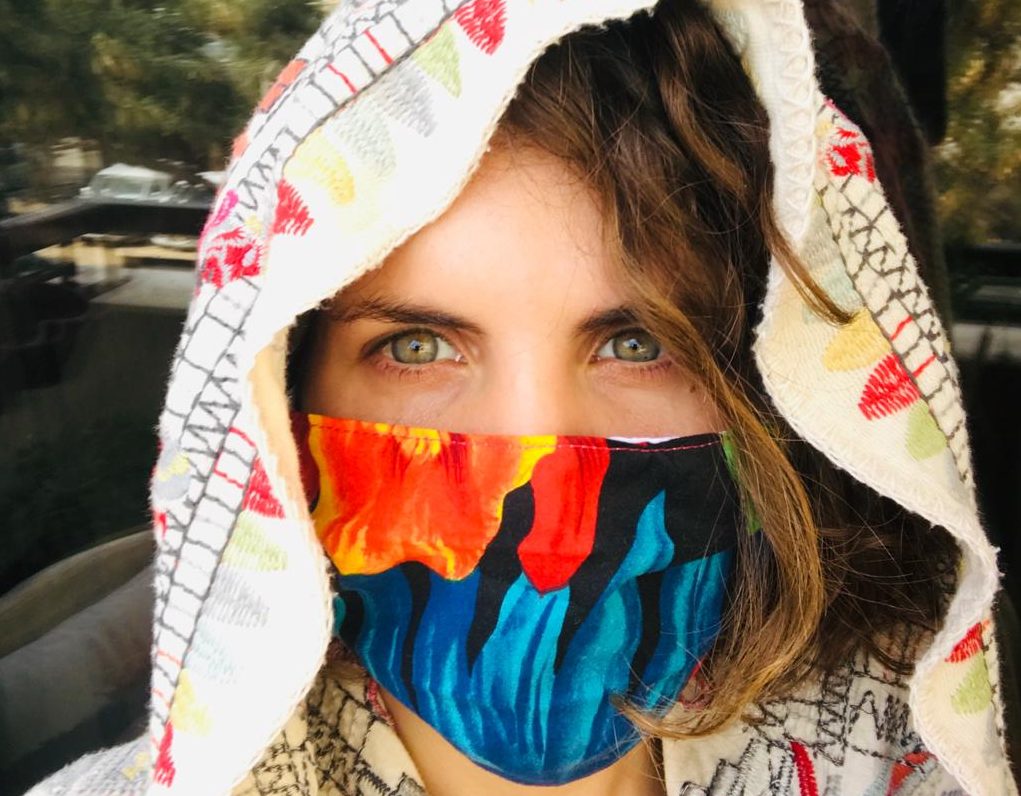


Facebook comments